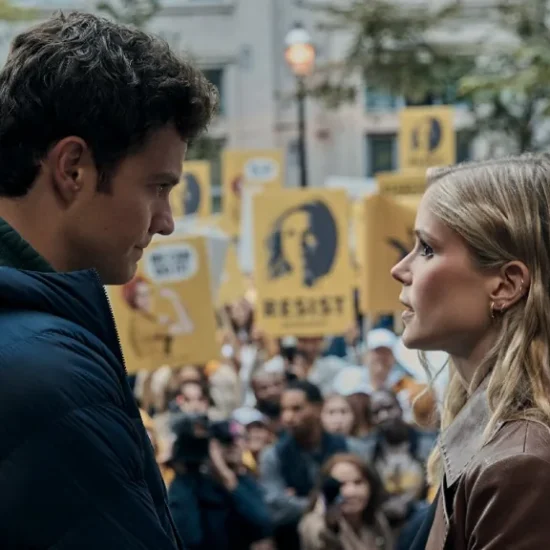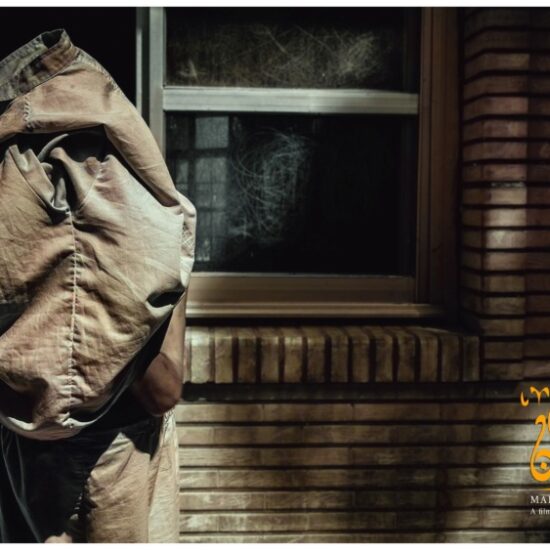
ECHOES OF THE EMPIRE: BEYOND GENGHIS KAHN.
https://www.imdb.com/title/tt11832792
Interview with Director Robert H.Lieberman by Emmanuel Itier
Genghis Khan is a mythical and an iconic historical figure that is both controversial and fascinating. Director and writer, Rober H.Lieberman is rising to the surface a new vision about the impact and the “legacy” from this man who changed his people, his empire and the World at large. This is a must see documentary to better understand how, in many ways, the planet and his leaders haven’t changed that much since Genghis Khan and are still putting our future upside-down with a mad spirit of conquest, a unsustainable vision of what “sovereignty” means: to put yourself above others. One can only hope that this decade will see the rise of peacemakers and not the perduring non-sense elections of war-destroyers.
Q: What inspired you to put together this film and what was you ambition with it?
Robert: First, and since it appears to me you are French, I’d like to mention I’m working with the “godfather” of animation, director and producer: Didier Brunner (https://en.wikipedia.org/wiki/Didier_Brunner ) so I’m spending a lot of time in France right now. He is doing a movie called, “The nazis, my father and me” based on one of my novels. I’m doing the screenplay for him. I’m first a novelist and a storyteller and I have written books for decades. This film is a novelist eye-view of a country. I have done it before in Myanmar, with Nobel laureate Aung San Suu Kyi and the documentary: “They call it Myanmar: Lifting the curtain” in 2012 and I also did “Angkor Awakens” which is a portrait of Cambodia. And here it’s the same approach. Instead of being character driven it’s driven, essentially, by the country I’m fascinated by. The main character is the country. So, here, I take you in this place, Mongolia, which is very unusual, and I let you meet the people I meet. I think that film is the most beautiful film I worked on. I do the filming myself except for the drone shots. Mongolia lands itself, really, to this kind of beauty because it’s vast and majestic. It has only three million people on a surface that is multiple times the size of France. I’m attracted by places that are remote, exotic and different. I want to show you, the viewer, places that you would normally not visit. This was the idea and the ambition I had in mind.
Q: What were the various challenges you faced making this film?
Robert: Well, the moving around the country is very difficult. There are only a couple of main roads, and the countryside is rugged. You are driving on tracks! So, you need a driver who knows the way or you would get lost. At one point I was in this area on the north-western part of Mongolia, and you can drive for eight hours just being battered. I was living in a tent below the snow-line, and I was living in huts with Mongolian families. So, I felt many times a deep exhaustion from filming over there. The distances and the means of travel are very demanding. There is also no sense of privacy because you sleep among other people, families who can be made of three generations, under the same roof. At one point I was by the Siberian border and I found myself sleeping on the floor surrounded by many people. But the Mongolians are very welcoming, and they share with you, everything. It’s like no other country I have been in. The film is not all positive and it deals with a real issue of pollution which turn some of these areas into the most polluted places in the planet during the winter. This is because of so much burning of coals. Mongolians face many challenges. Originally, Mongolians are huddlers and they now move to the cities so it’s not easy for them to survive and to keep their culture alive in an urban environment. Jack Weatherford, who is a bestseller writer about Genghis Khan is our narrator. He takes us back in History when Genghis Kahn was the greatest conqueror the World had even known. His empire stretched all the way from Mongolia to the steps of Vienna in Austria, and to Bagdad, as well as to Russia and India. So, this man was able to “united” a huge part of the World. The movie weaves in and out with this vision of the man called Genghis Kahn. It’s a big sweeping film.
Q: For you, what is this film truly about, are there any message, metaphors we should be aware of?
Robert: I don’t believe in message films. I want to take you on an adventure which not just about entertainment. You’re going to discover what I did. So, you see this country through this novelist eyes. I take you on a journey that you would, probably, never go on. I can save you twenty odd hours on a jet plane and give you a peek at what is Mongolia today and the legacy of Genghis Kahn. Maybe, after watching this film, would you want to go to Mongolia?














